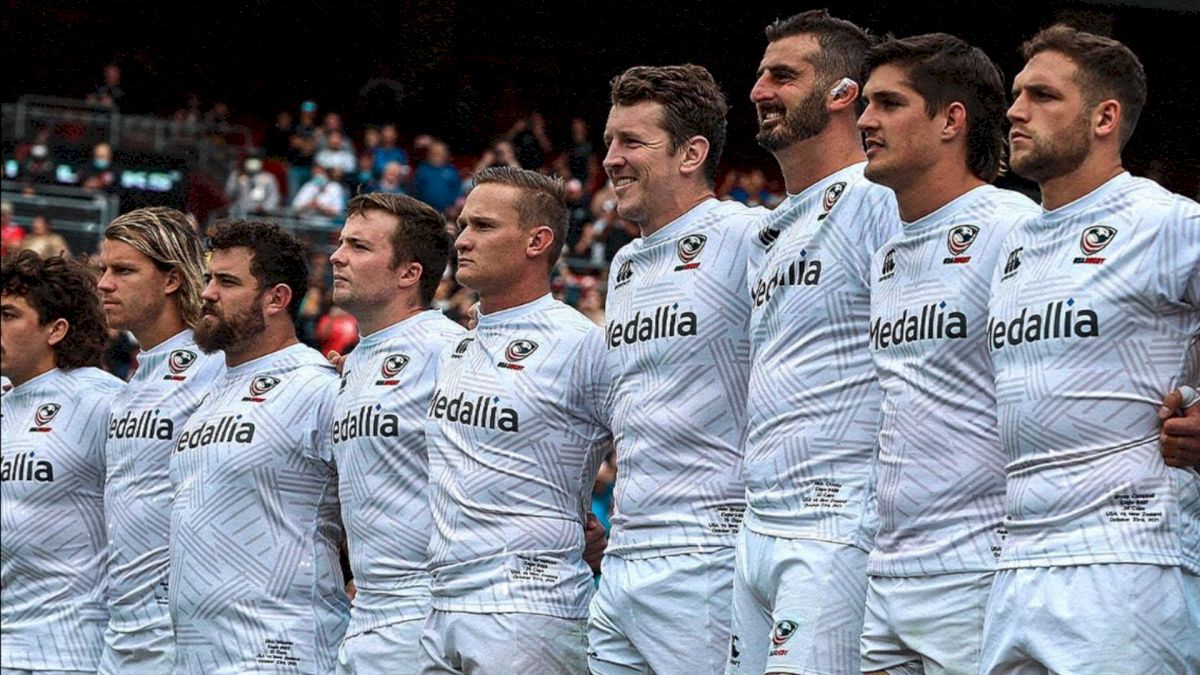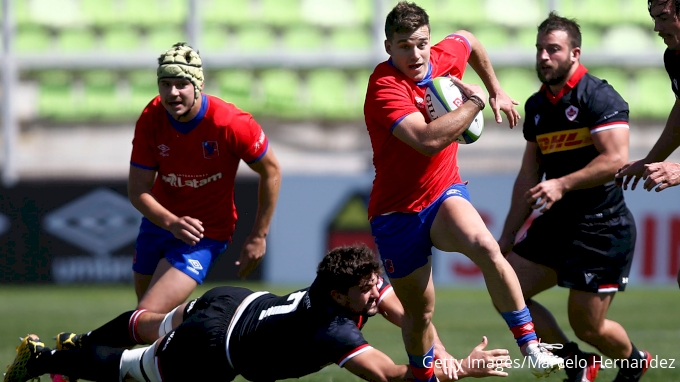Rugby World Cup: No North American Teams Qualify, Implications Examined
Rugby World Cup: No North American Teams Qualify, Implications Examined
Absence of the USA and Canada at Rugby World Cup 2023: Impact on regional growth and game's popularity explored - insights into challenges & opportunities.

Two Rugby World Cup mainstays. Two countries that have held legitimate claims in the past at being the second-best team in all of the Americas behind mighty Argentina.
Neither one, for the very first time, will feature at an upcoming Rugby World Cup.
The United States and Canada, which had missed a combined one previous World Cup in their histories entering the 2023 RWC qualification cycle, will not be crossing the pond to play in France, after both countries flamed out in qualifying and failed to obtain any of the multiple available RWC spots up for grabs for them.
It’s a setback for rugby in each country, especially as the game on the continent enters an important era. Where each country goes from here, however, might be telling how long their low points last.
North America won’t have a country playing rugby in France in a couple of weeks. Here's why that may be a bit more complicated than merely just its teams missing out on qualification:
Rock Bottom
For the first time in RWC history, no North American team will be representing the continent on the biggest stage in international rugby.
So, how did it get to this point?
The cracks in the foundation began when it no longer became guaranteed that either of North America’s two most powerful rugby nations — the United States and Canada — would earn a Rugby World Cup spot through the Americas qualification cycle.
In previous years, Canada and the United States, due to their statuses compared to other rugby nations on the continent, had been automatically drawn together in a two-legged playoff, with the winning team guaranteed a spot at the RWC, and the loser still eligible to qualify through repechage playoffs and tournaments.
However, for the 2023 qualification cycle, the North and South American processes were combined together for the first time since the 2003 cycle. While the Canada-United State playoff still happened (which the Americans won in September 2021), it was merely for the right to play for the Americas 1 slot at the RWC, which the United States eventually lost out on to Uruguay.

Canada, meanwhile, was relegated to the Americas 2 Repechage against Chile, and when the Condores won 54-46 across two legs, Canada missed out on a World Cup the first time in its history. But while the Canadians’ dismay was immediately apparent, the Americans’ downfall was death by a thousand cuts.
The Uruguay loss saw the Eagles play Chile for the right to be Americas 2 at the RWC, and thanks to a stunning Chilean win in Colorado to advance one point on aggregate, the Condores experienced the jubilation of qualifying for their first RWC.
The United States still had one final shot to qualify as part of the four-team Final Qualification Tournament, but when it drew 16-16 with Portugal in the finale to make the two teams level on points, it was the Lobos who advanced after a match-tying penalty from Samuel Marques allowed Portugal to move on on the basis of scoring differential — and force the United States to watch a RWC from home for the first time since 1995.
Rising From the Ashes
The failure to make the RWC resulted in swift changes in both the American and Canadian camps.
Former Wales captain and Canucks boss Kingsley Jones has survived the sack (for now), but a scathing internal review from Rugby Canada in March of last year indicated that there are major problems internally with its development programs and even running the organization, with it remarking that its high-performance development pathways are “inconsistently effective” and that Rugby Canada has a “poor relationship with the Canadian rugby community.”
In response, Rugby Canada has since hired former Italy Rugby Federation head of technical direction Stephen Aboud earlier this summer to be its new high-performance director in an attempt to reverse their trends and get back to the RWC, but at 23rd in the World Rugby Rankings as of this writing, Canada still has a long way to get back to the rugby heights it reached previously.
USA Rugby, meanwhile, has been in heavy financial trouble for much of the past decade, culminating in the organization filing for Chapter 11 bankruptcy in 2020, as the COVID-19 pandemic heavily impacted two of its main revenue sources: membership dues and event revenue. The latter was due to obvious event restrictions out of public safety, and the former was heavily due to moves made elsewhere in the American rugby sphere.
In large part due to the bankruptcy, college teams and organizations — most notably National Collegiate Rugby — have stopped paying USA Rugby dues to sanction them and gone independent instead. That internal turmoil, along with a product that didn’t produce results when it needed to and won’t be having any RWC exposure in France, isn’t a good mixture, especially under the watchful eye of World Rugby as the United States preps for hosting the men’s and women’s World Cups in 2031 and 2033, respectively.
With a new men’s coach in Scott Lawrence, after Gary Gold stepped down following the team's failure to qualify, the Eagles are trying to find reasons to believe again — and they need them.
USA's full new coaching staff (currently only on interim basis for this year).
— Tier 2 Rugby (@T2Rugby) May 11, 2023
Head coach: 🇺🇸 Scott Lawrence
Attack: 🇼🇸 Alama Ieremia
Defence: 🏴 Nick Easter
Scrum: 🇿🇦 Blake Bradford
Skills: 🇳🇿 Elvis Seveali'i
S&C: 🇺🇸 Alex Ross
Analyst: 🇺🇸 Jimmy Harrison https://t.co/NVa3NwIf0e
A Brighter Future?
The United States, in particular, can look forward to at least one thing on the men’s side — a World Cup is coming to its shores.
The 2031 RWC in the United States will be the first to be held in North America, and if there’s ever been a more perfectly timed opportunity to be as strong of a rugby nation as ever after as bad a nosedive as the Eagles had in the 2023 World Cup cycle, it hasn’t happened in American rugby history.
Those hopes are helped by the fact that Major League Rugby (the continent’s top domestic league, which began play in 2018) continues to grow, with 13 teams slated to play in the league in 2024 and new markets being explored. The debuting Chicago Hounds in 2023 opened the game up to a Midwestern audience, and the Miami Sharks will give sports-mad South Florida a rugby franchise beginning in 2024, among others.
First ever 23 in Hounds history. Let’s get this party started 🐺#ReleaseTheHounds #Week1 pic.twitter.com/WHjVZ2Yu4J
— Chicago Hounds (@HoundsChicago) February 17, 2023
As for Canadian rugby (which also has a team in the MLR, the Toronto Arrows), it’s clearly testing out new fits as it prepares with its neighbors to the south to try and storm back and qualify for Australia 2027.
Of the 32 players that made Jones’ squad for a two-test World Cup warm-up series for Tonga earlier this month, 23 entered the trip to Nuku’alofa with 10 international caps or less, as the Canucks attempt to find a new set of sparks for the quickly-approaching 2027 qualifying cycle.
Taking the setbacks on the chin in the hopes for major comebacks is really the best that the North American neighbors can hope for at the moment, but with growing fanbases and a developing professional scene on their continent, it’s increasingly feeling more like a demand than an aspiration.